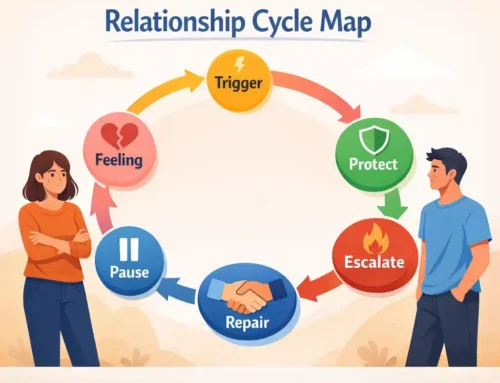
Approx. read time: 6.1 min.
Post: 5 Reasons Nature vs. Nurture Still Matters Today
The nature versus nurture debate has been a central question in psychology, philosophy, and biology for centuries. It revolves around a simple yet profound question: Are we born the way we are, or do our experiences shape us into who we become? While the debate is often framed as an either/or argument, modern research increasingly points to a more complex interplay between the two forces. Understanding this balance isn’t just academic; it has real-world implications for how we raise children, structure education, treat mental illness, and build a fairer society.
What Is Nature vs. Nurture?
At its core, the debate is about the relative influence of genetics (nature) and environment (nurture) on human development.
- Nature refers to the biological and genetic makeup that we inherit from our parents. This includes physical traits like eye color and height, as well as predispositions to certain mental health conditions or levels of intelligence.
- Nurture encompasses the experiences, relationships, culture, and environments that shape us after birth. This includes parenting styles, education, trauma, peer influence, and socio-economic factors.
In essence, nature is what we’re born with; nurture is what happens to us.
Why This Debate Still Matters
1. Understanding Human Behavior
Knowing whether traits like aggression, empathy, or intelligence are more influenced by biology or experience helps us understand human behavior. For instance, if aggression is largely genetic, we might treat it differently than if it stems mostly from environmental factors like childhood trauma or exposure to violence.
2. Parenting and Education
Parents often wonder: How much of my child’s personality is my influence, and how much is just who they are? Educators face similar questions: Can every student achieve the same results with the right support, or do innate differences limit outcomes? The answers influence how we teach, discipline, and support young people.
3. Public Policy and Social Programs
Government decisions about healthcare, education, criminal justice, and welfare often rely on assumptions about human nature. If we believe poverty is a result of bad choices (implying nature), we might cut social programs. But if we see poverty as largely shaped by unequal opportunities (nurture), we invest in early education, job training, and healthcare.
4. Mental Health Treatment
Some mental illnesses, like bipolar disorder or schizophrenia, have strong genetic links. However, environment often determines whether these genes are expressed and how symptoms are managed. Therapy, medication, and support systems can make a huge difference—a fact that underscores the role of nurture even when nature plays a part.
5. Social Equity
Perhaps the most critical reason the debate matters is how it influences our views on equality. If success is seen as the result of hardwired traits, we might accept inequality as natural. But if environment plays a major role, then creating equal opportunities becomes a moral and social imperative.
The Case for Nature
Proponents of the nature argument point to strong evidence that genetics influence a wide range of traits:
- Twin studies show that identical twins raised apart often have remarkably similar personalities, interests, and even habits.
- Research has found links between genetics and susceptibility to diseases, mental health conditions, and even political beliefs.
- Studies suggest intelligence is heritable to some degree, especially in stable environments.
These findings suggest that genes lay a blueprint that significantly affects how people think, behave, and respond to the world.
The Case for Nurture
On the other side, the nurture argument emphasizes the role of life experience:
- Children who suffer abuse or neglect are more likely to develop behavioral issues, regardless of their genetic makeup.
- Educational access, community support, and parenting styles dramatically affect academic and emotional development.
- Cultural norms and peer pressure often shape values, aspirations, and identity.
Environmental influence can even change how genes are expressed. This is the basis of epigenetics: the study of how behaviors and environment can cause changes that affect gene function.
The Modern View: It’s Both
Most experts today agree that the nature vs. nurture debate is a false dichotomy. Human development is shaped by a dynamic interaction between genetic predispositions and environmental influences.
For example, a child may be born with a genetic potential for high intelligence, but without a stimulating environment, proper nutrition, and educational support, that potential may never be realized. Similarly, someone may have a genetic predisposition to anxiety, but with the right coping tools and support system, they may never develop a clinical disorder.
This interactionist view is supported by:
- Epigenetics, which shows that environmental factors can activate or silence certain genes.
- Neuroscience, which reveals that the brain remains plastic and adaptable, especially in early childhood.
- Developmental psychology, which highlights the importance of early relationships and experiences in shaping lifelong behavior.
Why the Debate Continues
Despite scientific advances, the nature vs. nurture debate persists for several reasons:
1. Complexity
There is no single formula to determine how much of any trait is due to nature or nurture. It varies from person to person and trait to trait. This complexity means the debate is unlikely to be resolved with a one-size-fits-all answer.
2. Emerging Research
New findings in genetics and brain science constantly challenge old assumptions. We now know, for example, that trauma can be passed down through generations not just culturally, but biologically, via gene expression.
3. Ideological Influence
People often take sides based on personal beliefs, politics, or values. A strong belief in personal responsibility may lead one to emphasize nature. A belief in social justice might lead another to emphasize nurture.
4. Policy Implications
Different interpretations of the debate can support vastly different political agendas. This keeps the discussion alive and often contentious.
Real-World Example: Twin Studies
Identical twins have the same DNA. When raised apart, similarities in their behaviors, preferences, and health outcomes suggest a strong role for nature. However, the differences—which often include values, habits, and mental health conditions—highlight the impact of nurture.
Twin studies have shown that traits like intelligence, temperament, and risk for certain diseases are heritable, but they are also influenced by environment. A twin raised in a loving, structured home may thrive while the other, raised in a chaotic environment, may struggle.
Final Thoughts: Why It Still Matters
Understanding the balance between nature and nurture helps us make better decisions—as parents, teachers, policymakers, and individuals. It reminds us to respect both the inborn traits we can’t change and the environments we can.
It also grounds us in humility. We are not blank slates, nor are we rigidly determined by our DNA. We are the product of both our biology and our experience. The choices we make, the systems we create, and the care we give all shape what we become.
That’s why the debate still matters. Because at its heart, it asks us not just what people are, but what they could be. And that question remains as urgent now as ever.
Related Videos:
Related Posts:
The Food and Energy Connection: How What You Eat Shapes Your Vibration and Well-Being
God as Energy? Rethinking Divinity Through Science and Connection
B12 and Agni: Unlock Optimal Digestion
Life Is Your Playground—So Remember, You Only Live Once
Powerful Post-Therapy Recovery Routine – 7 Essential Steps
Yes, There Are Victories in Motherhood — Even When It Feels Like You’re Losing










